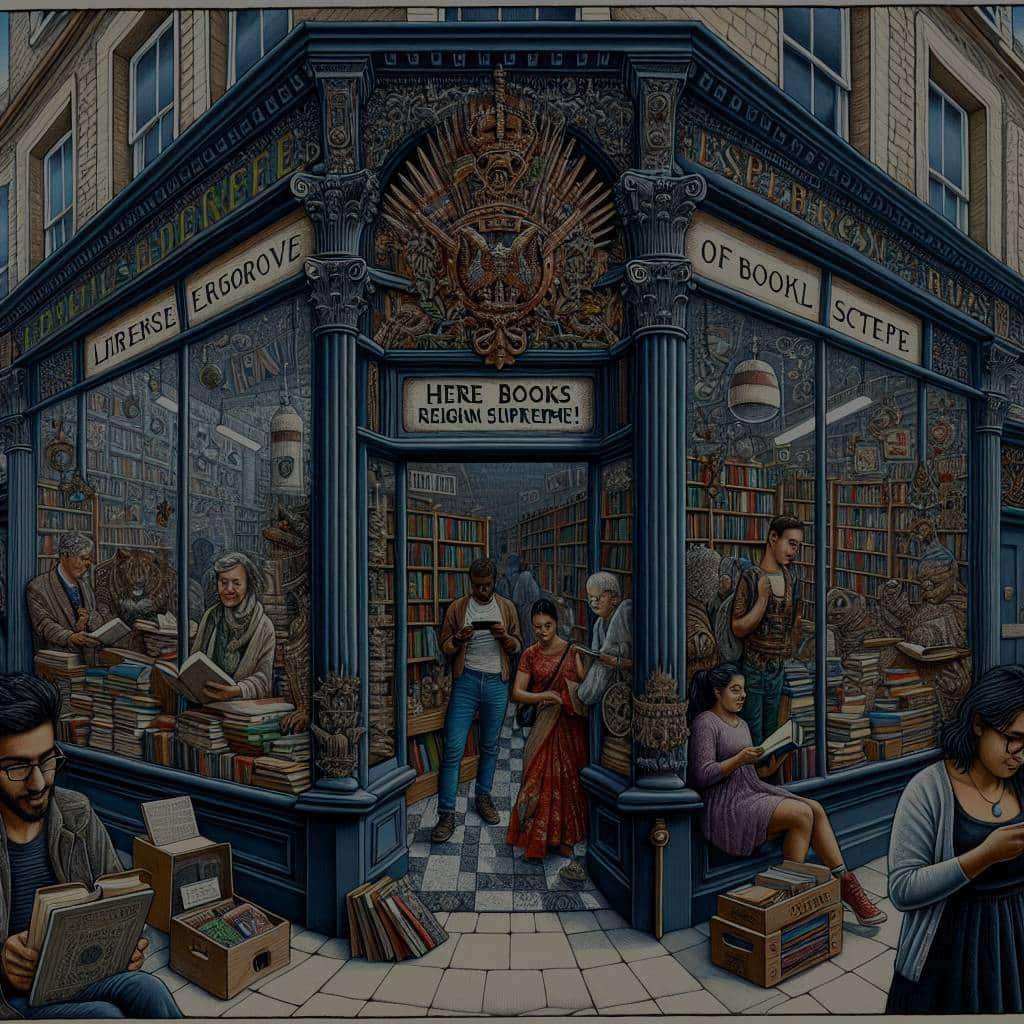How Can UK Independent Bookshops Thrive in the Age of Digital E-readers?

In an era where digital convenience has become king, the insistence on the physicality of reading a book may seem almost archaic. Yet, there is a unique charm attached to the tactile sensation of flipping through pages, the musty scent of old books and the vibrant chaos of a well-stocked bookshop. But as Amazon and other online giants continue to dominate the market, how can independent bookshops in the UK ensure their survival and growth? This article explores the challenges posed by the digital revolution and the possible strategies for independent bookshops to thrive.
The Struggle against Digital Giants
The last decade has seen a massive shift in the publishing industry. The increasing popularity of e-readers and ebooks, coupled with the convenience of online retail giants like Amazon, has put independent bookshops in a precarious position. But beneath this grim narrative, there’s more to the story.
Also to discover : What Are the Best Customer Service Chatbot Practices for UK Online Retailers?
In the UK, independent bookshops have been grappling with more than just digital competition. High rent prices, fluctuating sales, and the inherent challenges of running a small business are also significant factors. Furthermore, the introduction of the Amazon Kindle and other e-readers seemed to pose an existential threat to traditional bookshops. However, despite these hurdles, independent bookshops have not only survived but in some cases, they’ve even thrived.
Embracing the Unique Charm of Bookshops
Independent bookshops offer something that Amazon or other digital platforms cannot – a tangible, multi-sensory experience. The charm of browsing through a bookshop, chatting with knowledgeable staff, and attending author readings and signings are unique selling points that can attract and retain customers.
Also read : What Are the Effective Approaches to Sustainable Fashion in the UK Market?
It’s crucial for independent bookshops to amplify these selling points and use them to differentiate themselves from online retailers. Despite the convenience of online platforms, there’s a growing trend among people who prefer to disconnect from digital devices and return to traditional reading methods. By marketing themselves as places of relaxation and solitude away from the bustle of the digital world, independent bookshops can attract a niche, yet loyal customer base.
Collaborating with Local Authors and Publishers
One of the strengths of independent bookshops is their ability to connect with the local community. Unlike multinational corporations, which may seem distant and impersonal, independent bookshops can foster a sense of community and belonging among their patrons.
By partnering with local authors and publishers, independent bookshops can host book launches, readings, and signings that would be impossible to replicate online. This not only benefits the authors and publishers by giving them a platform for their work, but it also strengthens the bond between the bookshop and its customers.
Expanding Online Presence
While it may seem counterintuitive, having a strong online presence can actually benefit independent bookshops. With social media platforms and website retailers, independent bookshops can reach a larger audience, advertise events, and even sell books online.
With a well-designed website or engaging social media content, bookshops can showcase their unique offerings, from curated book selections to cozy reading spaces. This can help draw in online users who might be enticed to visit the physical store.
Adapt and Innovate
The future of independent bookshops in the UK and beyond lies in their ability to adapt and innovate. While they may not be able to compete with Amazon and other digital platforms on price or convenience, they can offer a unique, personalized experience that online retailers cannot.
This could involve diversifying their product offering to include café services or stationery products, offering subscription-based services or creating a loyalty program. Innovation and flexibility are key in ensuring that independent bookshops remain relevant and sustainable in the digital era.
As we delve deeper into the digital age, it is clear that the love for books and the charm of independent bookshops is far from obsolete. It is up to these bookshops to leverage their unique strengths and adapt to the changing market. Despite the convenience offered by digital reading and online shopping, there will always be a place for the warmth and charm of a physical bookshop.
Harnessing the Power of Social Media and Bookshop Org
Independent bookshops can also turn to social media and platforms like Bookshop Org to enhance their visibility and reach. Social media platforms such as Instagram, Facebook, and Twitter are powerful tools that can help bookshops connect with readers, promote events, and showcase their unique offerings.
In today’s digital age, almost everyone is on social media. By creating engaging content related to the books and authors they carry, bookshops can engage with their followers and foster a sense of community. They can post updates about new arrivals, author interactions, book club meetings, reading recommendations, and more. This can also be an effective way to update payment details or market report updates.
On the other hand, Bookshop Org is an online platform designed to support independent bookshops. Each sale through the website contributes to an earnings pool that is divided among independent bookshops. It provides a safe and secure platform for bookshops to sell their books online without having to worry about payment details or delivery logistics.
Public Libraries: Potential Allies on the High Street
Independent bookshops can also find allies in public libraries. Libraries and independent bookshops share a common goal: to promote the joy of reading and accessibility to a wide range of books. Forming strategic partnerships with public libraries can help bookshops increase their visibility and attract a wider audience.
For instance, libraries and bookshops can collaborate on events such as author talks, reading clubs, and children’s storytime. Libraries can also refer patrons to bookshops for purchases when they do not have a particular book in stock. These partnerships can not only increase footfall in bookshops but also enhance the sense of community.
Moreover, libraries often have mental health and community outreach initiatives. Collaborating with libraries on such initiatives can help bookshops position themselves as spaces that go beyond just selling books, fostering a supportive and inclusive environment.
Conclusion: The Unfolding Narrative
The books market is evolving, and independent bookshops in the UK need to adapt to stay afloat. The rise of ebooks and audiobooks, the convenience of buying books online, and the dominance of Amazon and Barnes & Noble are all challenges that they need to deal with. However, the market size for physical books is still significant, and the allure of the printed book is far from lost.
According to the Booksellers Association, there has been a resurgence in the popularity of print books, and independent bookstores are beginning to see an increase in book sales. The traditional charm of browsing through a physical bookstore, the joy of holding a book, and the smell of printed pages are experiences that digital reading cannot replicate. Therefore, it’s essential for independent bookshops to leverage their unique strengths and adapt to the changing market.
The survival and growth of independent bookshops depend on their ability to innovate and offer unique experiences that can’t be found in any online platform. By harnessing the power of social media and platforms like Bookshop Org, collaborating with local authors and publishers, and forming strategic partnerships with public libraries, independent bookshops can thrive in the digital age.
The narrative of independent bookshops is still being written, and it’s filled with hope and resilience. They are not merely retail spaces but community hubs that foster a love for reading and promote a culture of books. Despite the challenges posed by the digital revolution, independent bookshops have the potential to not just survive but thrive, contributing to the rich tapestry of the high street.
